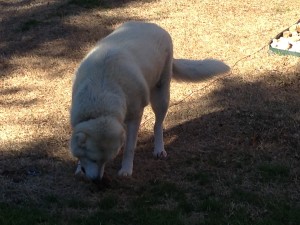Erbil, Kurdistan, Northern Iraq, 2004
It’s 5 AM. Brooks Gerritsen, a US government security contractor, is awaken by the sound of a door creaking open. Rahim, a member of the Kurdish secret police, steps through the doorway and scans the room. Locating Brooks, Rahim makes a slow approach and kneels by the bed. He reaches for Brook’s shoulder. “There’s been an incident.”
Brooks sat up and fought off a yawn. “How many, and where?” Others in the room began to stir.
“Five,” Rahim said, referring to the newly deceased. He then named the city where they’d taken their last breathes. “Mosul.” With that, the agenda for Brooks’ day was erased and rewritten.
Within minutes Brooks and his 12-member team were on the move. They commandeered 3 Chevy Suburbans as their 8-man Kurdish security escort boarded Toyota trucks – fitted with PKM medium size machine guns, 7.62 caliber. The convoy kicked up dust as they left their fortified compound and headed for Mosul.
During the start of the 45 minute drive, Rahim fed Brooks the details. Nasir Abdul Ahmad and his wife had been killed, along with their 6-year-old girl and two teenaged boys. Nasir was a local contractor who’d won several construction contracts with the US Department of Defense. The US used Iraqis to support the local economy, but the program also created a cadre of local targets. The story was all too familiar to Brooks. The insurgents typically gave those targets two choices; either pay up to support the cause…or die. Evidently Nasir had missed a payment.
Brooks processed the information, but as the convoy neared the last checkpoint in Kurdistan, his focus shifted to his safety, and that of his team. Until then, they’d been relatively safe, but beyond the Kurdistan border, it was open season.
Each vehicle picked up speed and weaved – efforts to make it more difficult for snipers or those trying to time the remote detonation of IEDs. These were effective tactics, but they weren’t perfect, and if one of the vehicles passed over a pressure sensitive IED, its occupants were toast.
Once at the scene, Brooks exited the vehicle and scanned the street, shielding his eyes from the newly risen sun. The victims’ neighbors watched from just outside their homes. They were curious but unwilling to get too close, fearful of being mistaken as providing information, or of getting caught up in a firefight. Brooks didn’t have the luxury of keeping his distance – he provided advice and tactical support to the Iraqi police, part of the US government’s effort to bring westernized police practices to the Iraqi people.
Brooks took measured steps forward. He understood the insurgents had to know the Americans would come, though if they’d planned an ambush, they’d likely have begun it by now.
The front door of the victims’ house flung open. A policeman burst out. Brooks and his team readied their weapons, but the policeman only wielded a broom, which he used to swat at a moving target – it looked like a small ball of fur.
“What the hell’s that?” someone asked.
Another said, “It’s a God-damned rat.”
“Why doesn’t he just fucking shoot it?”
The fur ball turned, dodged the policeman and scurried back toward the entrance, but the policeman turned too, swung the broom with perfect aim, and scored a direct hit.
The creature’ shriek sounded familiar. Brooks took a closer look. “That’s no rat.” It was a puppy, perhaps 6 or 7 weeks old. Brooks sped toward the man. “What do you think you’re doing?” With the man distracted, it was the puppy’s chance to get back into the house, but it bolted in the opposite direction, settling under Brooks’ suburban, as if it knew the one that had carried its protector.
Brooks didn’t want the puppy to get hit by a car, so he made his way back, scooted down, grabbed the shivering pooch and stashed him in the back of the suburban. He checked the doors and windows before heading back to the house.
Shah Abdulla, the Iraqi police lieutenant in charge of the investigation, stood by the doorway. “Why you do that, Mr. Brooks?” Pointing to his chest with his thumb, he added, “It was me tell him to move the dog. You always say to keep the area clean. What you thinking?”
Brooks thought it best to get back to the main event. “Let’s head inside.” He followed a hallway, turned into the family room and, knowing what to expect, looked down. The young girl and her two brothers lay on the carpet in a pool of blood. Their throats had been slit. Brooks glanced to his right. The mother’s body was sprawled over the side of a sofa. Her dress and panties had been pulled down to just above her ankles – it didn’t take a genius to know why. Brooks turned. The family patriarch, Nasir, was stationed in a corner chair – his eyes wide open, he’d likely been forced to watch the others die.
“Just think,” Shah said, standing to Brooks’ side. “How can it be like to see it happen?”
“I know. It must have been horrible for him.”
“Horrible. That’s right.”
“Where did you find him?”
“What you mean?”
“Where was he when you got here?”
“Mr. Brooks?” Shah pointed to Nasir. “We didn’t move him.”
“I’m talking about the pup. He must have been hiding, or they’d have killed him too.”
___________________
Fast forward to the present: After seven tours in Iraq and Afghanistan, perhaps Brooks’ greatest accomplishment is saving the Dog of War, an Akbash, now named Hiba. Although leery of men, Hiba is living a wonderful life with Brooks in Dallas, Texas.
The names have been changed, but the story is true, including the gory details.


